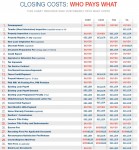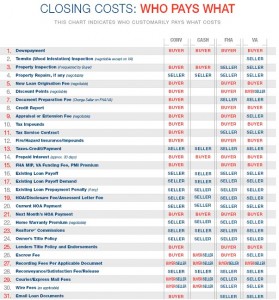Prepare for Hurricane Matthew’s Aftermath

As Hurricane Matthew churns through the Atlantic with a possible landfall in Florida, the Property Casualty Insurers Association of America (PCI) urged property owners to take some basic precautions to protect themselves and their belongings.
“With the potential for Hurricane Matthew to hit somewhere along the East Coast, the Governor has issued a state of emergency for all 67 counties in Florida,” says Logan McFaddin, PCI Florida regional manager. “This caliber of a system could bring major flooding and damages along Florida’s East Coast.”
In addition to making sure residents have emergency kits and plans ready, PCI urges residents and business owners to take precautionary measures to prevent damage to vulnerable property. Flooding from storm surge during hurricanes and tropical storms can be especially dangerous for residents along the coast and further inland. PCI recommends that homeowners who sustain damage report it as early as possible to their insurance company.
McFaddin says flood insurance is advisable, but “there is typically a 30-day waiting period between the date of purchase and when flood coverage will go into effect.”
PCI hurricane precautions
Review your property insurance policy, especially the “declarations” page, and check whether your policy pays replacement costs or actual cash value for a covered loss.
Inventory household items, and photograph or videotape them for further documentation. Keep this information and insurance policies in a safe place.
Keep the name, address and claims-reporting telephone number of your insurer and agent in a safe and easily accessible place.
Protect your property by covering all windows with plywood or shutters, moving vehicles into the garage when possible, and placing grills and patio furniture indoors.
Keep all receipts for any repairs so your insurance company can reimburse you.
Check with your insurance adjuster for referrals to professional restoration, cleaning and salvage companies if additional assistance is needed.
Make sure watercraft are stored in a secure area, like a garage or covered boat dock. A typical homeowners policy will cover property damage in limited instances for small watercraft, and separate boat policies will provide broader, more extensive property and liability protection for larger, faster boat, yachts, jet skis and wave runners.
There will certainly be an extended period with power outages. After the storm, empty out your freezer and refrigerator of all perishable items and put in covered trash receptacles. Unplug all appliances and electronics since there will certainly be surges when power is restored.
Be mindful of downed power lines when going outside after the storm. Broken branches can also be dangerous and will continue to fall given the winds and rain that follow the storm. Remove debris from your property to ensure continued safety.












 Kim N. Bregman
Kim N. Bregman